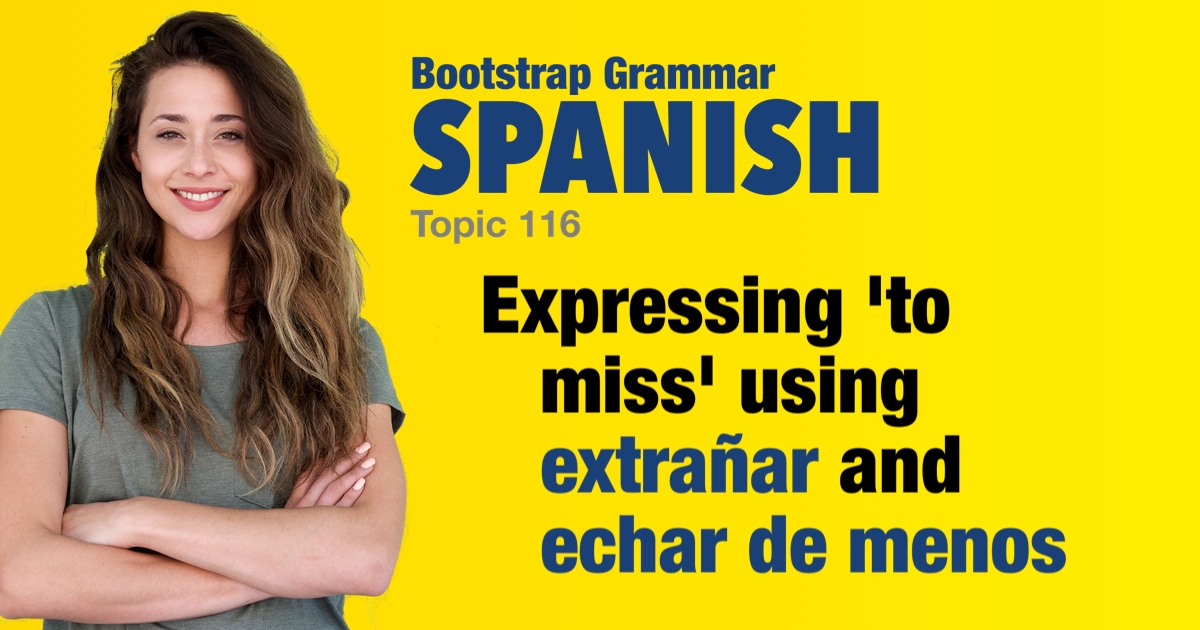Spanish grammar - Expressing 'to miss' using extrañar and echar de menos |
|||
|
|||
In Spanish, the emotional concept of 'missing' someone or something are expressed through two main verbs: extrañar and echar de menos. • extrañar means 'to miss' someone or something emotionally. -- The pattern is: [subject] + extrañar (conjugated) + [object] • echar de menos literally means 'to throw less of', but in this context, it translates to 'to miss'. -- The pattern is: [subject] + echar de menos (conjugated) + [object] Additionally that is echar en falta which is similar to echar de menos but has a slightly more formal tone. |
| Examples: | |
|
Extraño a mi madre todos los días.
I miss my mother every day.
|
|
|
Ellos extrañan su hogar mientras están de viaje.
They miss their home while they are traveling. |
|
|
¿Extrañas a tus amigos?
Do (you, familiar) miss your friends?
|
|
|
Ella extraña su vida en el campo.
She misses her life in the countryside.
|
|
|
Extrañamos la comida de nuestra abuela.
We miss our grandmother's food. |
|
|
Echamos de menos las vacaciones en la playa.
We miss the vacations at the beach.
|
|
|
¿Echas de menos a tu perro?
Do (you, familiar) miss your dog? |
|
|
Ellos echaron de menos su ciudad natal.
They missed their hometown.
|
|
|
Echamos de menos los días de verano.
We miss the summer days. |
|
|
Echa de menos el ruido de la ciudad.
He/She misses the noise of the city. |
|
|
Eché en falta a mis amigos en la fiesta.
I missed my friends at the party.
|
|
|
Ana echó en falta su familia durante las fiestas.
Ana missed her family during the holidays.
|
|
|
Ellos echaron en falta las montañas mientras estaban lejos.
They missed the mountains while they were away.
|
|
|
Echamos en falta los paseos por el parque.
We missed the walks in the park.
|
|
|
Echa en falta el ambiente de la oficina.
He/She misses the office atmosphere.
|
|
|
A Ana echó en falta su familia.
Ana missed her family. |
|
|
Echo en falta a mi novia y ella me echa en falta a mí también.
I miss my girlfriend and she misses me too.
|
|
 |
|


 Note the preposition
Note the preposition 
